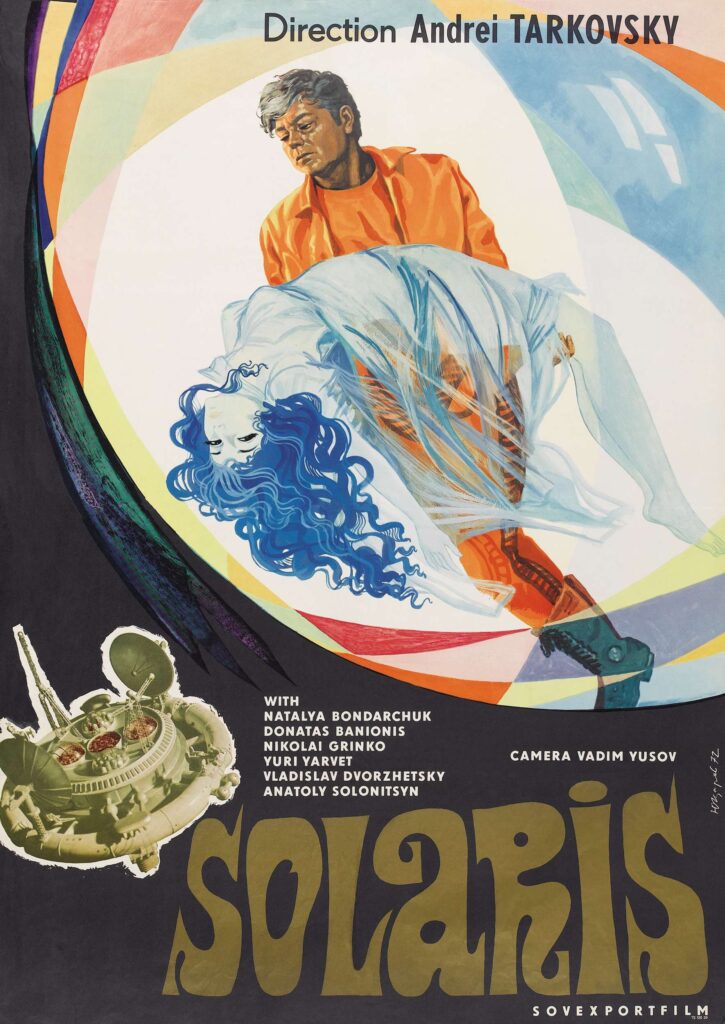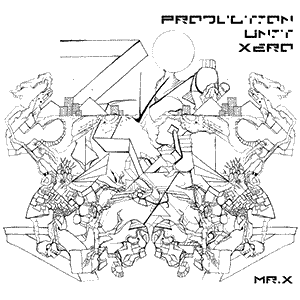Solaris OST (1972) – Film Soundtrack Review

The 1972 film “Solaris,” directed by Andrei Tarkovsky, remains a cornerstone of science fiction cinema, not just for its haunting visual storytelling but also for its groundbreaking soundtrack by Eduard Artemyev. In an era where film scores were dominated by traditional orchestral compositions, Artemyev’s work on “Solaris” represented a significant departure, utilizing electronic sounds and innovative techniques to create a soundscape as enigmatic and profound as the film itself. This article delves into the experimental aspects of the “Solaris” soundtrack, exploring how Artemyev’s compositions contribute to the film’s exploration of memory, grief, and the unknowable vastness of space.
The Experimental Fabric of “Solaris”
At the heart of “Solaris” lies Artemyev’s pioneering use of the ANS synthesizer, a photoelectronic musical instrument created by Russian engineer Evgeny Murzin. Named after the composer Alexander Nikolayevich Scriabin, the ANS synthesizer allowed Artemyev to translate drawn images directly into sounds, a method that mirrored Tarkovsky’s visual language in its abstraction and emotional depth.
Artemyev’s choice to use the ANS synthesizer was not merely for its novelty but for its capacity to produce sounds that were, at the time, utterly alien to the human ear. This choice was pivotal in crafting a sonic palette that could encapsulate the film’s themes of isolation, alienation, and the ineffable nature of the Solaris ocean. The resulting soundtrack is a tapestry of haunting melodies, ambient textures, and sonic motifs that evoke the vast, cold expanse of space and the inner worlds of the characters.
Bach Interpreted Through the ANS Synthesizer
One of the most striking features of the “Solaris” soundtrack is Artemyev’s reinterpretation of J.S. Bach’s “Chorale Prelude in F-minor,” played through the ANS synthesizer. This merging of Baroque music with electronic experimentation serves multiple narrative functions—it acts as a bridge between the familiar and the alien, the earthly and the cosmic. It also underscores the film’s meditation on memory and humanity, grounding the story’s speculative elements in the emotional realities of its characters.
The Soundscape of Memory and Loss
“Solaris” is as much about the inner space of grief and memory as it is about outer space. Artemyev’s soundtrack is integral in conveying this, employing aural motifs that recur in various forms throughout the film. These motifs, sometimes serene, sometimes dissonant, mirror the protagonist’s psychological journey and the shifting, dreamlike nature of the Solaris station. The soundtrack’s experimental approach—combining synthesized sounds with natural ones, like the murmur of waves or the rustling of leaves—blurs the lines between the real and the surreal, echoing the film’s exploration of what is genuine in human experience and what is mere reflection.
Ambient and Dissonant: A Dual Approach
Artemyev’s work on “Solaris” oscillates between ambient, almost meditative textures and moments of jarring dissonance. This duality is not merely stylistic but thematic, reflecting the dual nature of the Solaris ocean as both creator and destroyer, a source of life and a mirror to the darkest recesses of the human mind. The soundtrack’s ambient elements invite contemplation, while its dissonant aspects convey the terror of the unknown and the uncontainable.
Legacy and Influence
The soundtrack of “Solaris” stands as a monumental achievement in film music, showcasing the potential of electronic soundscapes to enhance and expand the cinematic narrative. Artemyev’s experimental approach not only served the film’s story but also paved the way for future explorations in electronic music and film scoring. The influence of “Solaris” can be heard in the works of later composers who have embraced synthesis and electronic textures to convey complex emotional and thematic narratives.
Engaging with the “Solaris” soundtrack is an exercise in active listening, inviting audiences to immerse themselves in its layers and nuances. Eduard Artemyev’s compositions demand attention, rewarding listeners with a rich sonic experience that complements and deepens the visual journey of Tarkovsky’s film. Through his experimental techniques and innovative use of the ANS synthesizer, Artemyev crafted a score that transcends traditional film music, offering instead a profound meditation on the human condition set against the backdrop of the infinite cosmos.
“Solaris” remains a testament to the power of music to transcend the visual and narrative components of cinema, creating an immersive experience that lingers long after the final credits roll. Eduard Artemyev’s soundtrack is not just a collection of compositions but a journey into the unknown, reflecting the vastness of space and the depths of the human psyche. In “Solaris,” Artemyev and Tarkovsky created a world where sound and image are inextricably linked, each enhancing the other to tell a story that is as timeless as it is otherworldly.
Addendum: Eduard Artemyev – The Digital Ghost
Eduard Artemyev is a renowned Russian composer, known for his pioneering work in electronic music and his iconic film scores for directors like Andrei Tarkovsky. His compositions, characterized by innovative use of electronic instruments and ambient soundscapes, have earned him a distinguished place in the world of music. However, finding Artemyev’s music online can be challenging due to a combination of factors, including limited digital distribution of Russian music from his era, copyright restrictions, and the niche appeal of some of his more experimental works. Despite these hurdles, his contributions to electronic and film music remain highly influential and continue to attract a dedicated following.




